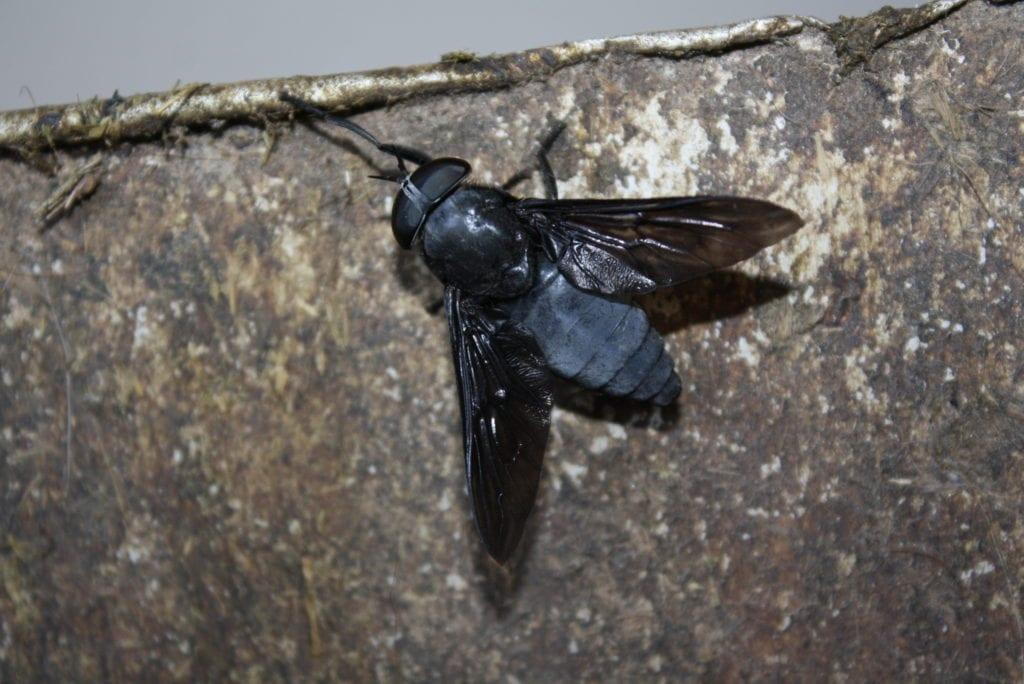What is Equine Infectious Anemia (EIA) and How to Prevent It
- posted: Feb. 19, 2021
 What is EIA?
What is EIA?
Equine Infectious Anemia (EIA), also known as swamp fever, is a potentially fatal disease caused by a virus that can infect all types of equines, including horses, mules, zebras, and donkeys. In most cases, the disease begins with an acute phase of illness, followed by chronic symptoms which continue throughout the remainder of the horse's life. Some horses do not show any symptoms but can still be a source of infection for other animals.
How Do Horses Get EIA?
The EIA virus passes from one equine horse to another through blood. Biting flies, like horseflies, deer flies, and stable flies can transmit it after feeding on an EIA infected horse. If something interrupts a horsefly’s meal — for example, it gets swatted by the horse’s tail — it will return to the same horse if no other horses are close by. If a pasture mate happens to walk up to the horse that was previously being fed on, it is at risk for getting the disease from the fly.
Other ways horses are able to get EIA are as follows:
- Reusing needles and syringes on multiple horses
- Contamination of multi-dose drug vials by inserting a used needle and/or syringe that deposits blood (with virus) into the bottle.
- Reusing IV tubing
- Using unlicensed blood or plasma products
- Improper cleaning and sterilization of lip tattoo equipment
What the Virus Does
EIA attacks the horse’s immune system. Clinical signs of EIA include muscle weakness, progressive loss of condition, and poor stamina. An affected horse might also develop a fever, depression, and anemia.
The disease has three phases of infection—acute, chronic, and inapparent carrier—yet not all affected horses develop all phases. Many acutely infected horses die and survivors suffer from the disease’s chronic impacts. Others create an immune response and persist as carriers.
Most EIA infected horses develop some level of anemia—red blood cell or hemoglobin deficiency—while still looking fit and able to do their job.
Horses that develop an acute infection may experience severe red blood cell destruction and are likely to die. Most infections, however, seem to progress to a relative state of remission, yet these horses still provide a reservoir for viral infection either by way of insect vectors and/or people and medical treatment. Underlying anemia might reduce a horse’s resistance to contracting other diseases.
Chronic symptoms that may occur continually during the course of the disease include:
- loss of coordination
- loss of appetite
- frequent urination
- diarrhea
- weakness
- paralysis of the hindquarters
- paleness of the mucous membranes
- yellowish discoloration of the conjunctiva
- small hemorrhages beneath the tongue and eye
- rapid breathing and accelerated pulse
- abortion in pregnant mares
Treatment of an EIA horse
Sadly, there is no cure for EIA. With a positive diagnosis of this disease there are very few options for horse owners. In many cases, the disease is so severe that it kills the horse on it’s own. If the horse recovers, it will test positive for EIA the rest of its life and will not be able to be pastured with or near any other horses as it can spread the disease. Many horse owners decide to humanely euthanize their horse if it tests positive for this disease.
Can EIA Be Prevented?
While the entire biting fly population can’t be wiped out, there are some precautions horse owners can take to protect their horses.
- Get your veterinarian to pull a Coggins test on each horse once a year to check for EIA (have this done at one of your vaccine appointments to make it easier to remember when it’s time to re-test!)
- Isolate new horses until they have been tested for EIA.
- Make sure to comply with horse industry testing and certificate requirements for racetracks, events, sales and boarding stables.
- Use disposable needles and syringes.
- Apply hygiene practices.
- Have an insect control program for your stable and property. Here's a list of helpful fly products!
- Do not breed EIA-positive horses.
- Tell your veterinarian about any clinical signs of EIA that you notice.
Carolina Equine Hospital
Does the new horse in your barn need to get tested for EIA or are you noticing him display some signs that may be related to the disease? If you are ever worried about your horse or just want to be proactive about his care, give us a call to set up an appointment for a check up!
Location
Find us on the map
Browns Summit Location
5373 NC Hwy 150
Browns Summit, NC 27214, United States

